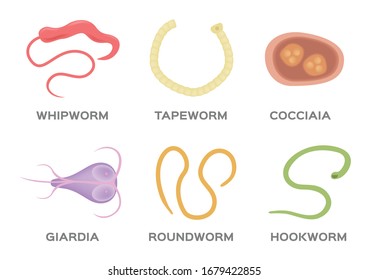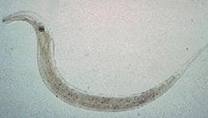

Antigen tests look for worm proteins that can be detected if your dog has an infection. Therefore, veterinarians rely on microscopic examination for eggs or fecal antigen testing to diagnose hookworms. A dog can have a severe hookworm infestation without shedding any adult worms. Your veterinarian will diagnose hookworms by examining a sample of your dog’s feces under a microscope to look for eggs.Ĭlients often ask, “can you see hookworms in dog poop?” Unfortunately, the answer is no. Additionally, some dogs may develop dark, tarry stools due to intestinal inflammation caused by hookworm infection. Adult dogs with anemia are often lethargic, reluctant to exercise, and may demonstrate shortness of breath. Like puppies, the most common effect of hookworms in adult dogs is anemia. In adult dogs, the signs of hookworms vary depending on the severity of the infection. Even in older puppies, hookworms can be fatal. If you look closely at the gums of an anemic puppy, you may notice that they are pale or white, instead of having the normal healthy pink color. In older puppies, anemia can cause lethargy, poor appetite, and failure to gain weight appropriately. In newborn puppies, severe anemia and death can occur as early as one week after birth, before the adult hookworms even begin laying eggs. Severe signs are typically seen in young puppies, due to the puppies’ small size and the significant effects of blood loss in growing animals. The signs of hookworms in dogs are variable. Hookworm larvae can penetrate unprotected skin, causing a rash called cutaneous larva migrans.
#Hookworms in humans poop skin#
Like dogs, humans can also be infected through skin contact with contaminated soil. If a human ingests soil contaminated by dog feces (for example, in the case of a young child who plays in contaminated soil and eats without washing his hands), an intestinal infection can develop. Cases of hookworms in humans from dogs can occur. Hookworms are a zoonotic parasite, meaning that they can infect both animals and humans. The larvae are passed in the milk to the nursing puppies.

The death of adult intestinal hookworms signals inactivated larvae to mature and travel to the intestines, creating a new infection. These tissue larvae remain inactivated, in cysts, until they are activated by a chemical signal. Skin contact with hookworm larvae: If a dog walks through (or lays on) contaminated stool or soil, infective larvae can migrate across the skin and enter the body’s tissues.In two to four weeks, these larvae will mature and create an adult intestinal hookworm infection. Ingestion of hookworm larvae: If a dog eats contaminated feces (or grass/leaves contaminated by infected feces), hookworm larvae enter the intestinal tract.There are a few ways that a dog can become infected with hookworms: Infective hookworm larvae remain active in the soil for up to several months, which means they can reinfect the same dog or infect other pets and even people. Within a day or two of being passed in the environment, the eggs develop into larvae and mature to an infective stage. When a dog has a hookworm infection, adult female hookworms lay eggs, which are then passed in the dog’s feces (stool). To better understand what causes hookworms in dogs, it’s helpful to think about the hookworm life cycle in dogs first. In addition to causing anemia, severe hookworm infestations can cause significant intestinal inflammation and damage. This can lead to anemia (lack of red blood cells), which is the most common problem associated with hookworms. Once attached, hookworms begin sucking blood from their host. They use their mouthparts, which contain either teeth or cutting plates, to attach to the intestinal wall. These small worms (only half an inch long) have a body that bends to form a hook shape. Hookworms get their name from their body shape. This parasite primarily causes problems in young puppies, but it can also affect adult dogs. The most common species of hookworm is Ancylostoma caninum, although there are other species of hookworms that can also infect dogs. Hookworms are an intestinal parasite (worm) that lives in the small intestines of dogs and other animals.


 0 kommentar(er)
0 kommentar(er)
